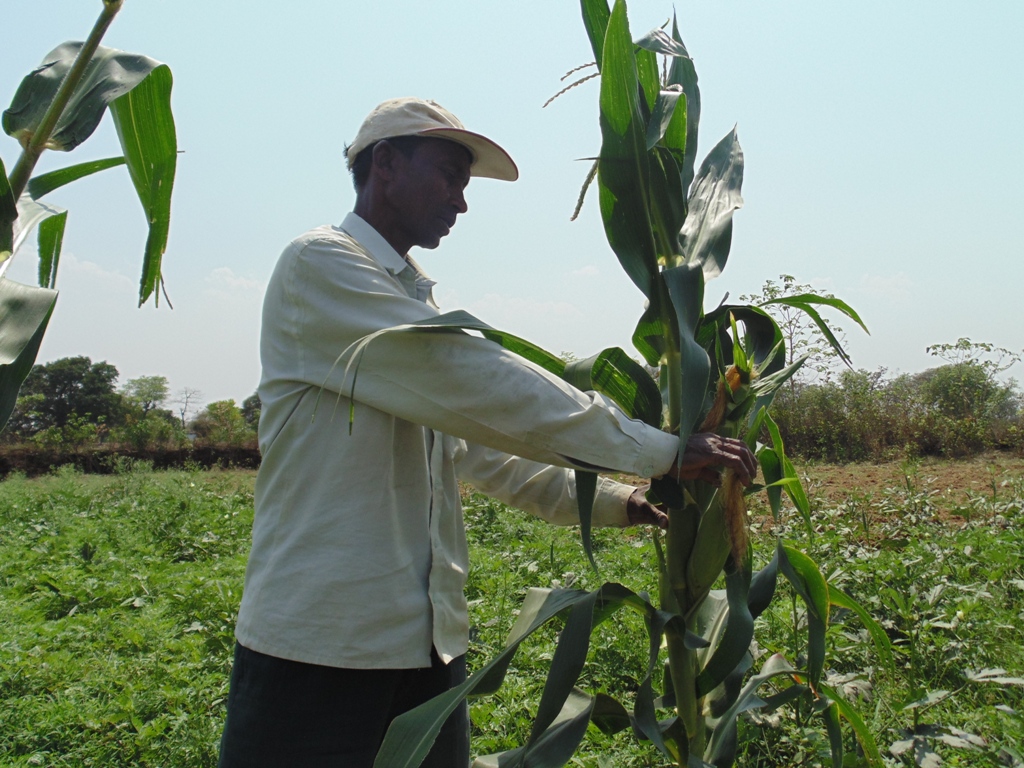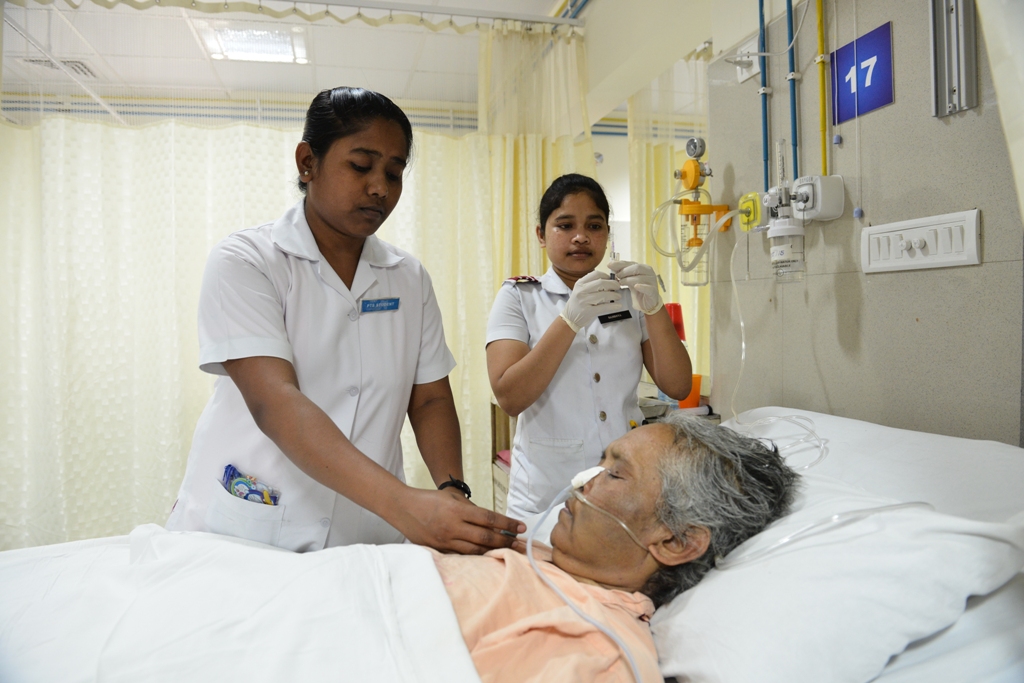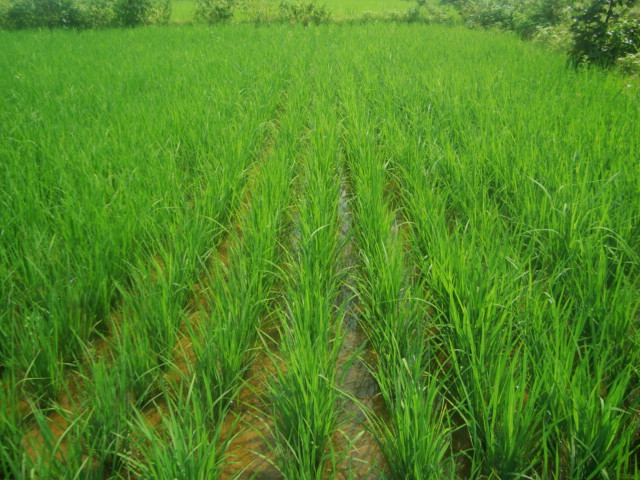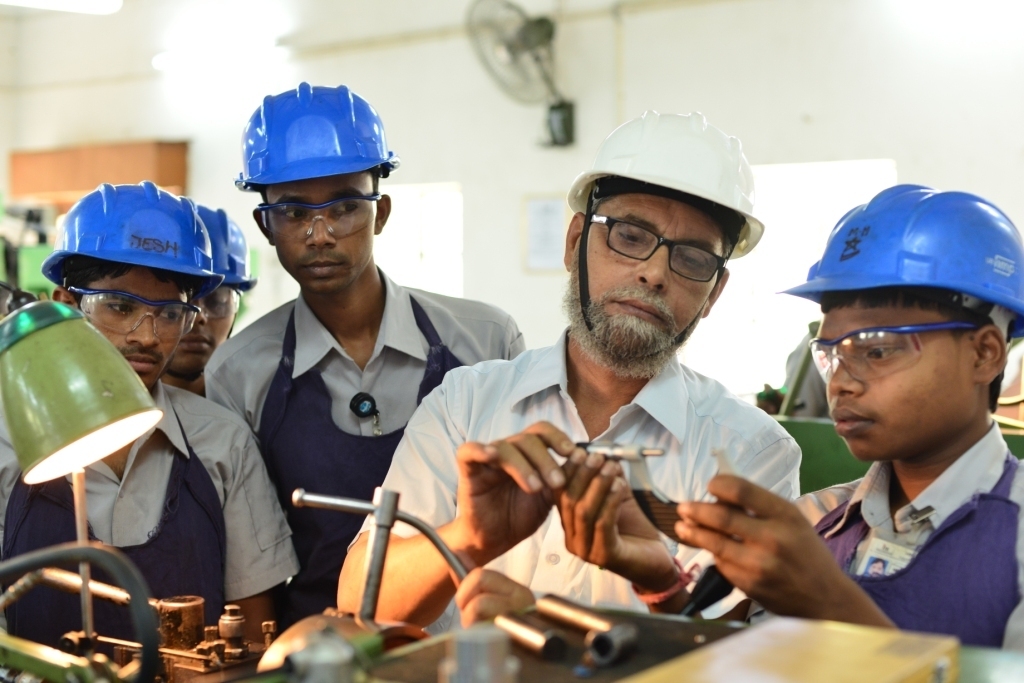Tata Steel providing access to sustainable livelihoods for SC/ST communities
~ Increased focus on climate resilient agriculture, skilling youth and enterprise development~
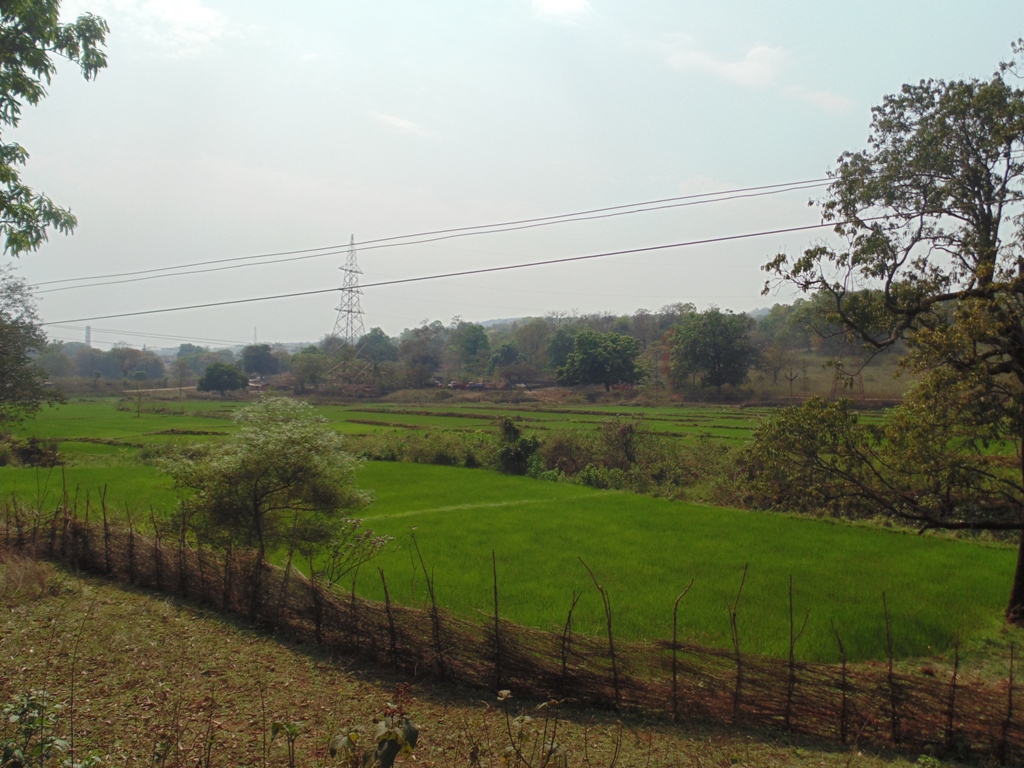
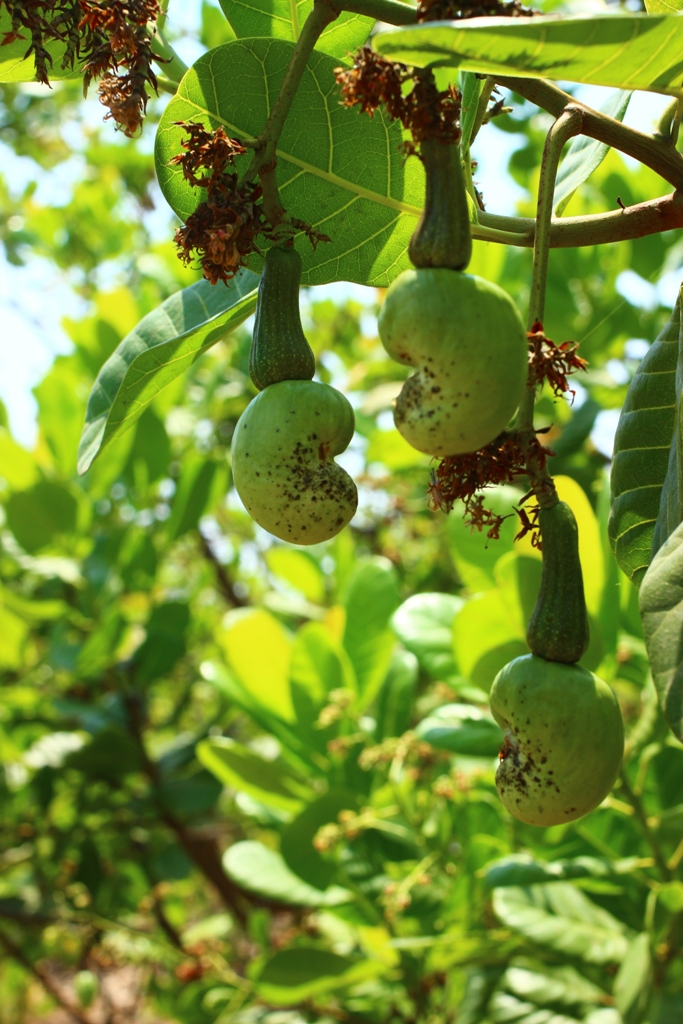 Tata Steel endeavours to provide sustainable livelihood solutions to the communities in the form of focussed interventions in agriculture, skill development as well as enterprise development.
Tata Steel endeavours to provide sustainable livelihood solutions to the communities in the form of focussed interventions in agriculture, skill development as well as enterprise development.
Agriculture being mainstay of nearly 80% of people in Jharkhand, Tata Steel has been running various activities to increase agricultural productivity and coverage area under second and third crops, wasteland development in Jharkhand.
Paddy is the principal crop in Jharkhand and its cultivation is a must for small and big farmers. To increase paddy yield, Tata Steel has motivated and trained farmers to adopt System of Rice Intensification (SRI) method of paddy cultivation. The initiative, over the last four years, has been adopted by nearly 8,000 farmers have benefitted of which more than 40% i.e. 3,200 belong to SC/ST communities. Due to SRI method, paddy productivity in company’s operational villages increased from 0.5-0.6 tonnes/acre in FY05 to around 2.5 tonnes/acre in FY16.
For livelihood enhancement of tribal villages, Tata Steel in partnership with Department of Welfare, Government of Jharkhand has implemented MADA (Modified Area Development Approach) Project in six administrative blocks - Nirsa, Tundi, Topchanchi, Govindpur, Baliapur and Jharia blocks in the district of Dhanbad. Since 2007, more than 4,600 tribal farmers have benefitted through creation of water storage structures and irrigation mechanisms. Over 900 irrigation structures have been constructed in the last five years.
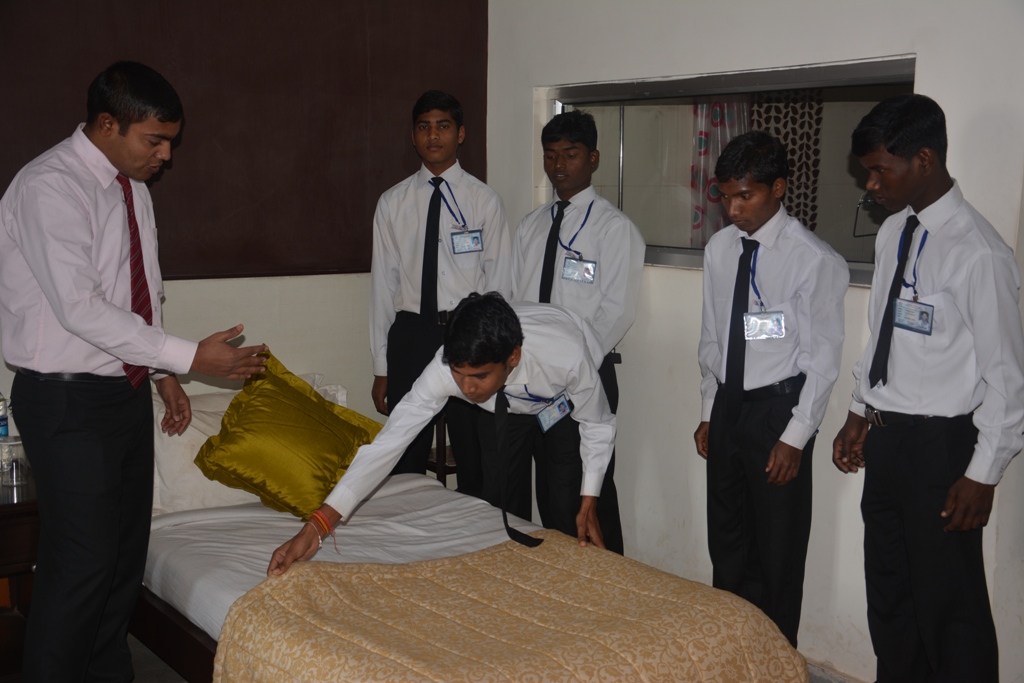
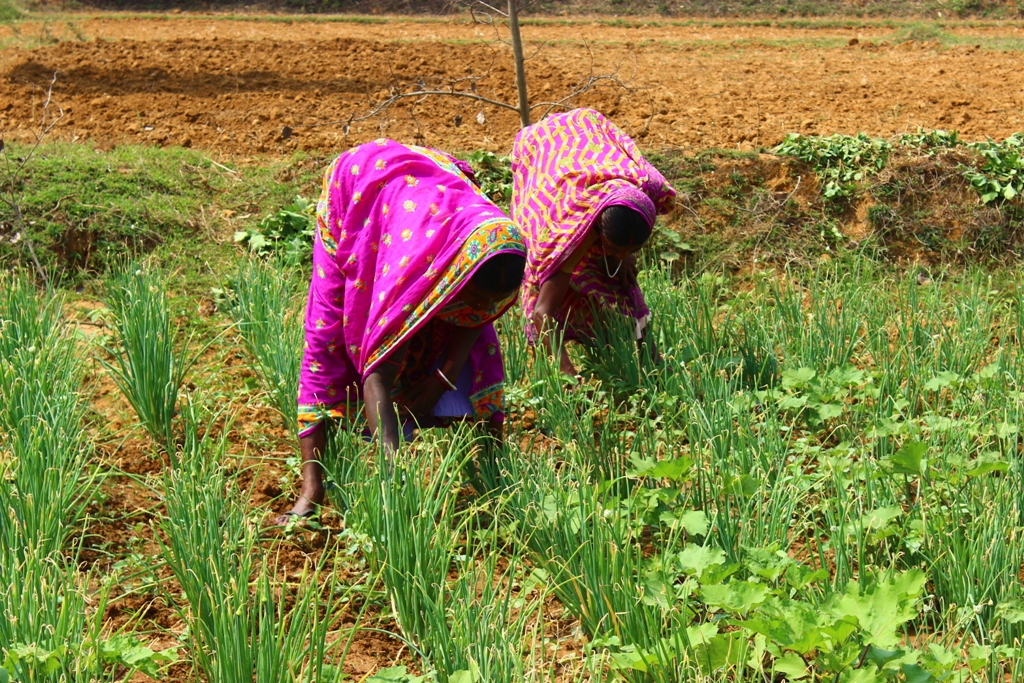 To harness rainwater for irrigation, Tata Steel in Noamundi has constructed check dams. Water is further channelized through canal irrigating large swathes of farm land in the villages. Water running through the canals comes all the way down from a natural source located atop one of the verdant hills. Consistent supply of water has enabled farmers to take the initiative of growing paddy.
To harness rainwater for irrigation, Tata Steel in Noamundi has constructed check dams. Water is further channelized through canal irrigating large swathes of farm land in the villages. Water running through the canals comes all the way down from a natural source located atop one of the verdant hills. Consistent supply of water has enabled farmers to take the initiative of growing paddy.
In the recent years, Tata Steel has also promoted viable land-use options for degraded cultivable wastelands by promoting cashew plantation. Nearly 1,500 farmers from SC/ST communities have adopted cashew plantation in over 7,500 acres and benefitted from the wasteland development programme.
In a state like Jharkhand, job opportunities are outnumbered by the large number of unemployed and unskilled youth. Working as an employability enabler, Tata Steel runs various skill development programmes to enable youth gain skills to get jobs as well as become self-employed. The objective is to transform unskilled human resource to a productive resource pool for growth and societal development. Tata Steel Skill Development Society (TSSDS), one of the Corporate Social Responsibility operating arms, has been set up exclusively to run a variety of skill development programmes in partnership with leading training institutes. TSSDS in collaboration with the Government of Jharkhand is running TSSDS Private ITI, Tamar (near Ranchi) for the last three years offering courses in industrial streams. It has also set up Tata Steel Technical Institute, Burmamines (in Jamshedpur) to offer diploma courses in mechatronics and electrical and electronics. For training at these two institutes, TSSDS has partnered with Nettur Technical Training Foundation.
In partnership with PRATHAM and Taj Group of Hotels, we are successfully running a housekeeping course in Kolebira near Jamshedpur. The course has proved to be immensely beneficial for SC/ST youth who could not pursue education up to or beyond higher secondary level. Run by TSSDS, the housekeeping course has created a record of sorts, as batch after batch; it has witnessed 100% placements. In FY16, a total of 130 housekeeping trainees from Kolebira Hospitality Training Centre landed with jobs that came from some of the country’s leading hotels like Park Hyatt, Goa; Dolphin Hotel, Hyderabad; Hotel Le Meridien, Mahabaleshwar.
The company is also running Project Samriddhi to make girls (especially from naxal-affected regions) skilled for gainful employment in health sector. More than 250 girls from left-wing extremist areas are being trained on health sector skills (B Sc Nursing, ANM, GNM, Ophtalmic Nursing etc) at various institutes across India. In the last three years, the company has provided employability training in trades like construction, automobiles, motor driving, housekeeping, BPO, computer hardware, etc. to over 8,000 youth, out of which about 2,800 youth have been gainfully employed.
Since FY14, the company has initiated a novel approach to get buy-in of the SC/ST community as well as make them partner in the development work at village level. Several village level organizations have been registered as trusts and societies with the support and guidance of Tata Steel Rural Development Society, through which village empowerment and development activities are being conducted. These organizations have 80% members from the SC/ST community. Their activities range from procurement as well as supervision of watershed work (bunding), pond deepening, and civil work contracts for village infrastructure development and water management. This has helped in empowering SC/ST community, as they not only get source of livelihood but also a say in the growth story of their villages.
